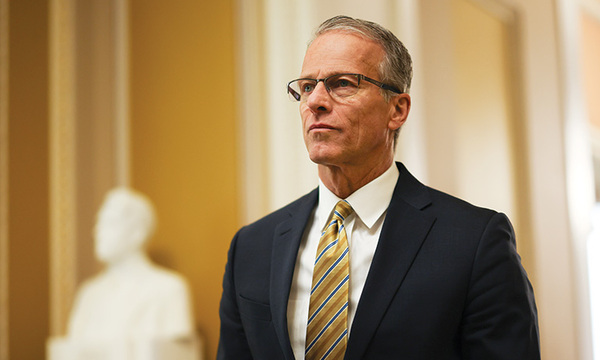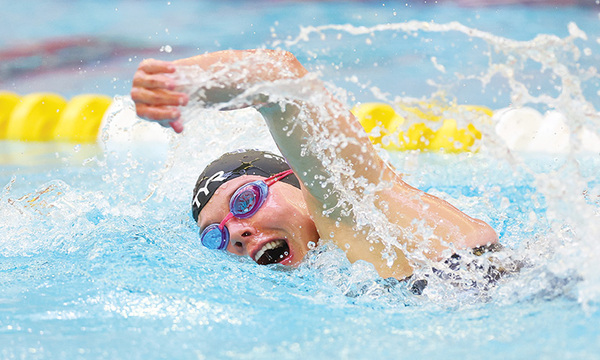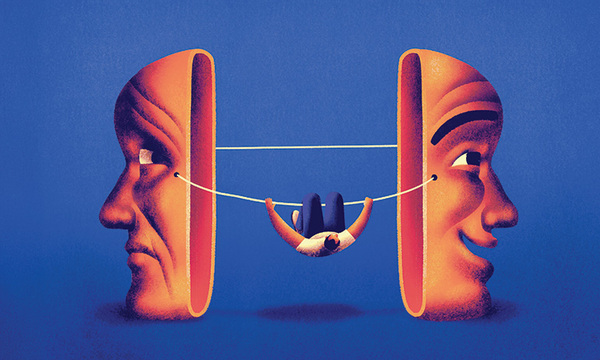At night, when visiting hours were over, a paralyzed Joni Eareckson Tada wrenched her head back and forth against her pillow, hoping to break her neck again and end her life.
Why, she thought, would God allow one of his believers to become a quadriplegic, to suffer?
Eareckson Tada’s question from more than four decades ago is one of the fundamental theological queries explored in an innovative Biola biblical studies course called “The Theology of Suffering and Disability.”
The class, the first undergraduate course of its kind in the nation, helps prepare Biola students to minister to the disabled community, which churches have long neglected. It is also designed to help students understand and find common ground with people with disabilities.
And the course allows students to make sense of their own suffering, whether it’s suffering from a broken heart, a broken home or another form of anguish.
“This course will mean that so many more disabled people like me will be reached with the good news of Jesus,” Eareckson Tada, a leading Christian speaker and writer, said during a chapel service in which she announced the formation of the class. “Because I tell you what, the statistics are skyrocketing. Disability is on the rise. What do you do with those kids with autism in Sunday school who keep screaming and jumping up and (down)? What do you do with elderly people who have Alzheimer’s? How are churches going to be prepared?”
Biola professor Kathy McReynolds, bioethicist and director of public policy at the Christian Institute on Disability, teaches the course and developed the syllabus. During the class, students hear from numerous guest speakers and spend a weekend at the Joni and Friends International Disability Center. They also stay with a family impacted by disability to get a first-hand glimpse into their lives and serve them.
Many people are uncomfortable being around those with disabilities because they appear to be so different, McReynolds said.
“There is a fear of the unknown,” she said. “Once you break down those walls and those barriers, what ends up happening is they begin to realize that the plight of people with disabilies really parallels the human condition and the Christian journey in many ways. It’s eye-opening.”
B.J. Walton, 22, a biblical studies major who graduated in May, enrolled in the class because he wanted to throw himself into something beyond his comfort zone. Before the course, he always appreciated hearing about someone doing disability ministry or teaching a special education class, but never had the strength or desire to do it himself.
“It’s really reshaped my worldview and quite honestly, how I see people with mental and developmental disabilities,” he said. “It’s made me a lot more comfortable interacting with them.”
Although Walton said he is not in a place where he’s thinking about pursuing full-time disability ministry, he said the class has deeply affected him.
“I have a real heart for people who are more of the outcasts, more on the fringe, and people with disabilities are in that category quite frequently,” he said.
From the start, the thought-provoking class proved popular. It filled up within the first two hours of registration and had a wait list of 30 students. McReynolds decided to allow 47 students in her classroom. She has since received inquiries from numerous colleges interested in replicating the course, fielding calls from as far away as Egypt, India and China.
Churches haven’t been good at talking about suffering or reaching out to people with disabilities, McReynolds said.
“There’s fear and ignorance of a difficult mandate,” she said, adding that churches are also concerned about the costs and liability.
“We get so many calls and e-mails from people who have been shunned by the church,” who are no longer welcomed because of their child’s disabilities, she said. “It breaks your heart.”
Nursing major Kaitlyn Carey, 21, said what she’s learning in the class is pertinent to her chosen field, where she deals with suffering and disability.
“It’s an amazing course,” she said. “It’s helping me integrate my Christianity into my practice as a nurse more than I ever thought imaginable.”
Carey said students and McReynolds have talked about the value of suffering.
“There’s an immense value to suffering in this world from a spiritual point of view,” she said. “It’s one of the fastest ways people can identify with Christ.”
More than 650 million people around the world are suffering with disabilities, about 51 million of whom are Americans. With disability on the rise, education and ministry are vital, McReynolds said.
“There are very few Americans who are not touched in some way by disability,” she said.
 Biola University
Biola University


